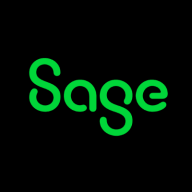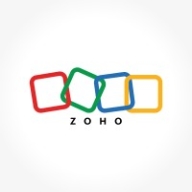

Sage CRM and Zoho CRM are competitive in the CRM software market. Zoho CRM seems to have the upper hand with dynamic customization and broader integration options.
Features: Sage CRM excels in accounting, finance, and inventory control, offering robust tracking of staff communications and billing activities, along with integration with Microsoft Office 365. Zoho CRM is valued for its remote data access through APIs, extensive customization, and seamless Google Apps integration, alongside robust reporting, lead management, and automated workflows.
Room for Improvement: Sage CRM could benefit from enhanced email and social media integration, more dynamic reporting on dashboards, and modernization of charts and analytics. Zoho CRM needs improvement in email templates, campaign management, better social media integration, and simplifying the user interface. Its automation and scalability for enterprise deployments could also be more developed.
Ease of Deployment and Customer Service: Sage CRM supports both on-premises and private cloud deployments, offering satisfactory customer service with a comprehensive knowledge base, though response times could be improved. Zoho CRM provides public, private, and hybrid deployment options, and is praised for being user-friendly and offering rapid technical support, though scalability issues for large-scale enterprises sometimes occur.
Pricing and ROI: Sage CRM offers moderate pricing considered reasonable for enterprise deployment despite being occasionally viewed as expensive, balanced by good ROI reports. Zoho CRM provides competitive pricing with multiple plans targeting different business needs, generally seen as affordable, though adding extra features can increase costs. Both report positive ROI, but users appreciate Zoho CRM's comprehensive feature offerings relative to its cost.
Using Zoho CRM, my clients close more leads and deals with the campaigns and user investments in leads.
Sometimes, they don't understand what my actual needs are.
The 1.5 deduction from 10 is due to cultural communication differences based on where we're getting the support, as sometimes it takes a couple of times to communicate clearly enough for them to understand the issue.
There are multiple blogs and articles available online for self-help.
The system is easy to understand, implement coding, and conduct training.
Zoho CRM is quite scalable; I have worked with clients who started with ten companies and have scaled up to managing 500 employees effectively within Zoho CRM.
The platform's global data centers across regions such as the US, EU, and India ensure data security and privacy through ISO certification and strong role-based security, which is essential for handling sensitive customer data.
Zoho CRM guarantees 99% uptime, with downtime incidents being very rare.
The level of stability and reliability in Zoho CRM is crucial for me because sometimes bugs appear unexpectedly, disrupting the business flow.
I find Zoho CRM to be 100% stable and reliable as far as I know.
The platform does not save code versions similar to GitHub, where you can compare new versions with previous ones.
Some organizations may prefer not to have their data on the internet since Zoho CRM runs as a cloud service.
The main improvement needed for Zoho CRM is introducing SQL code for reports, similar to what's in Zoho Analytics.
Zoho CRM and all of Zoho's software are quite affordable because they are specifically designed for small and medium businesses.
In terms of my experience with the price and licensing cost, as with setup cost for Zoho CRM, it might not be quite affordable because there are cheaper solutions available.
The most valuable aspect of CRMs, including Zoho CRM, Salesforce, and Microsoft Dynamics, is automation capabilities.
The most valuable feature I have found in Zoho CRM is custom functions. You can achieve anything with it. From integrations with other applications, it is instant.
Zoho CRM's automation capabilities are really good and better than almost any other application.
| Product | Market Share (%) |
|---|---|
| Zoho CRM | 1.8% |
| Sage CRM | 0.7% |
| Other | 97.5% |

| Company Size | Count |
|---|---|
| Small Business | 3 |
| Midsize Enterprise | 3 |
| Large Enterprise | 2 |
| Company Size | Count |
|---|---|
| Small Business | 45 |
| Midsize Enterprise | 6 |
| Large Enterprise | 10 |
Zoho CRM empowers organizations with a complete customer relationship lifecycle management solution for managing organization-wide Sales, Marketing, Customer Support & Service and Inventory Management.
We monitor all CRM reviews to prevent fraudulent reviews and keep review quality high. We do not post reviews by company employees or direct competitors. We validate each review for authenticity via cross-reference with LinkedIn, and personal follow-up with the reviewer when necessary.